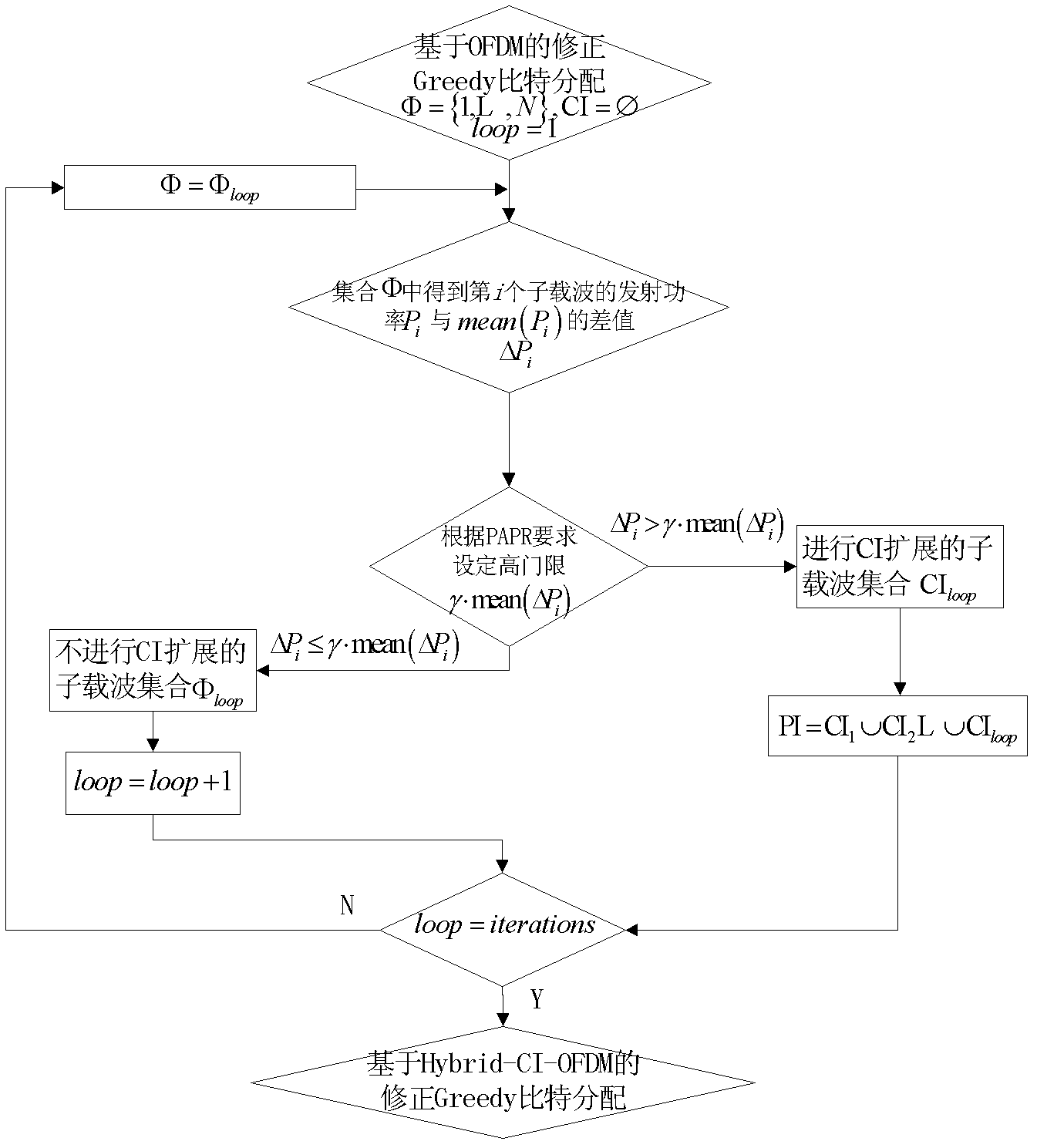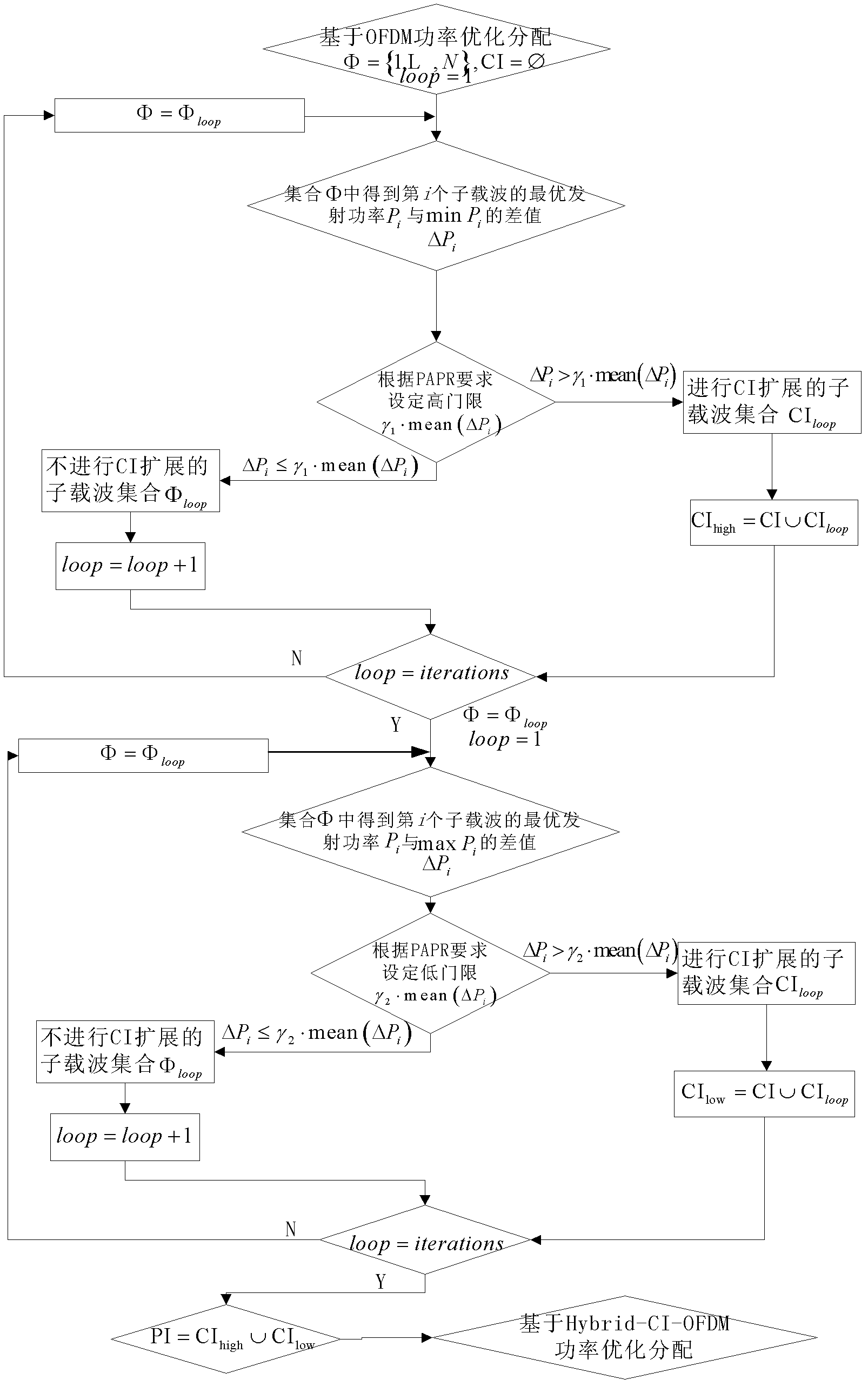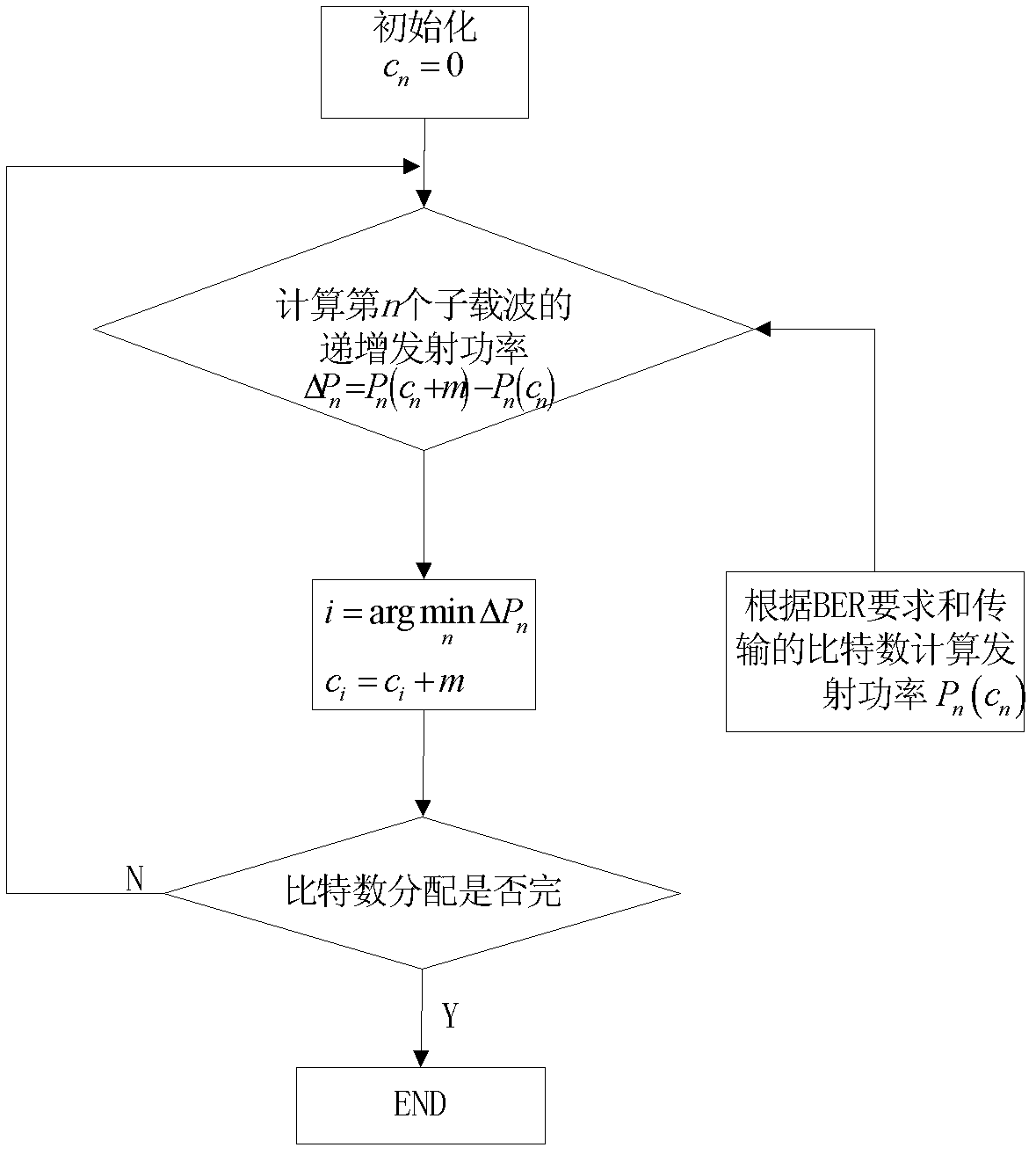Adaptive modulation method for optimizing peak-to-average power ratio (PAPR)
A technology of peak-to-average power and adaptive modulation, which is applied in the field of communication and can solve problems such as high peak-to-average power ratio
- Summary
- Abstract
- Description
- Claims
- Application Information
AI Technical Summary
Problems solved by technology
Method used
Image
Examples
Embodiment Construction
[0055] The present invention will be further described below in conjunction with the accompanying drawings and specific embodiments.
[0056] CI-OFDM is a new mechanism proposed in recent years. While retaining OFDM's high spectrum utilization and the ability to resist frequency selective fading, CI-OFDM extends each channel of low-speed parallel data to all sub-channels with orthogonal CI codes. Simultaneous transmission on the carrier, thus resulting in frequency domain diversity gain, compared with the traditional OFDM system has better BER performance. In the CI-OFDM system, the CI code can evenly stagger the peak value of the time-domain waveform of each data modulation, instead of adding many random sinusoidal signals like OFDM, thus eliminating the problem of excessive peak-to-average power ratio.
[0057] The present invention aims at optimizing the peak-to-average power ratio when the service quality and transmission rate are constant, and aims at the problem of high ...
PUM
 Login to View More
Login to View More Abstract
Description
Claims
Application Information
 Login to View More
Login to View More - Generate Ideas
- Intellectual Property
- Life Sciences
- Materials
- Tech Scout
- Unparalleled Data Quality
- Higher Quality Content
- 60% Fewer Hallucinations
Browse by: Latest US Patents, China's latest patents, Technical Efficacy Thesaurus, Application Domain, Technology Topic, Popular Technical Reports.
© 2025 PatSnap. All rights reserved.Legal|Privacy policy|Modern Slavery Act Transparency Statement|Sitemap|About US| Contact US: help@patsnap.com



